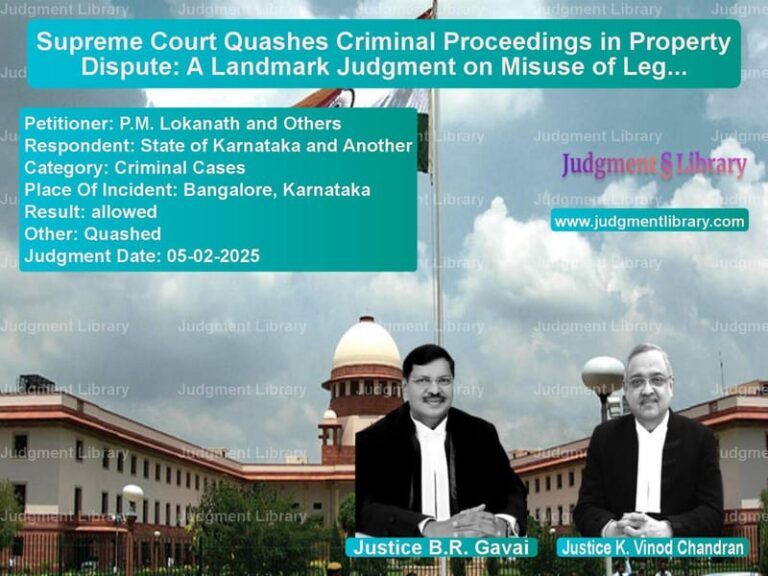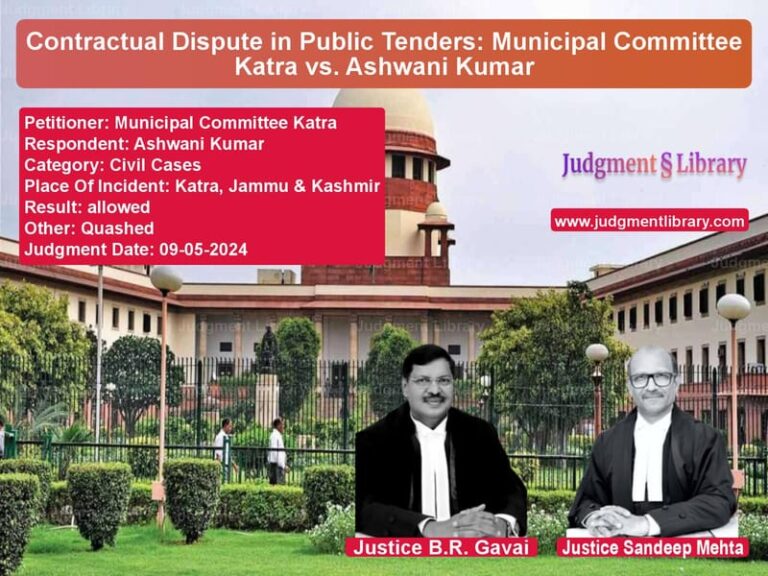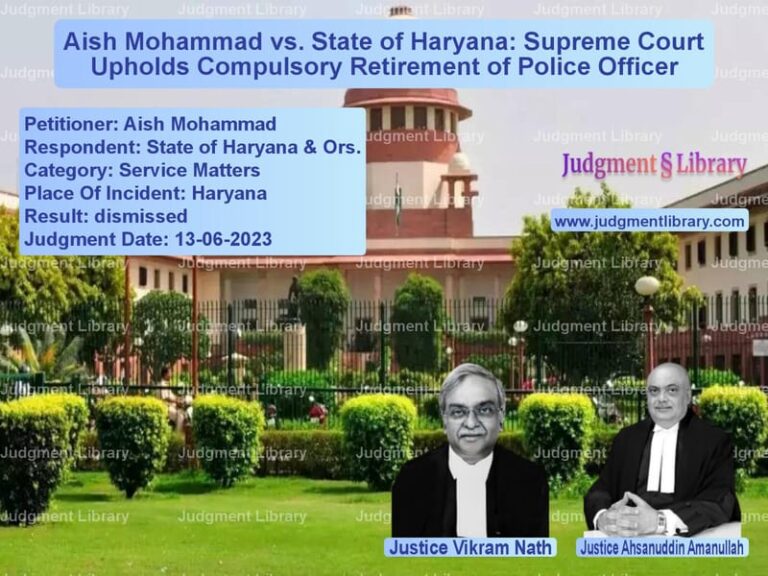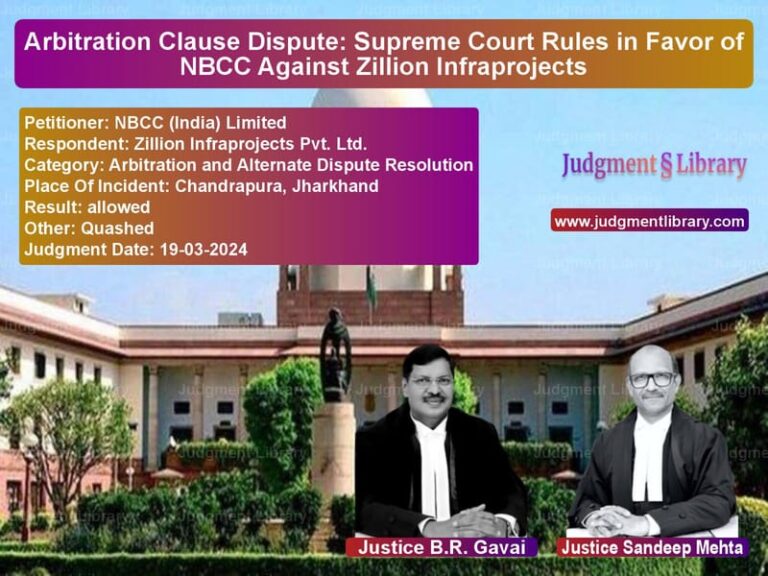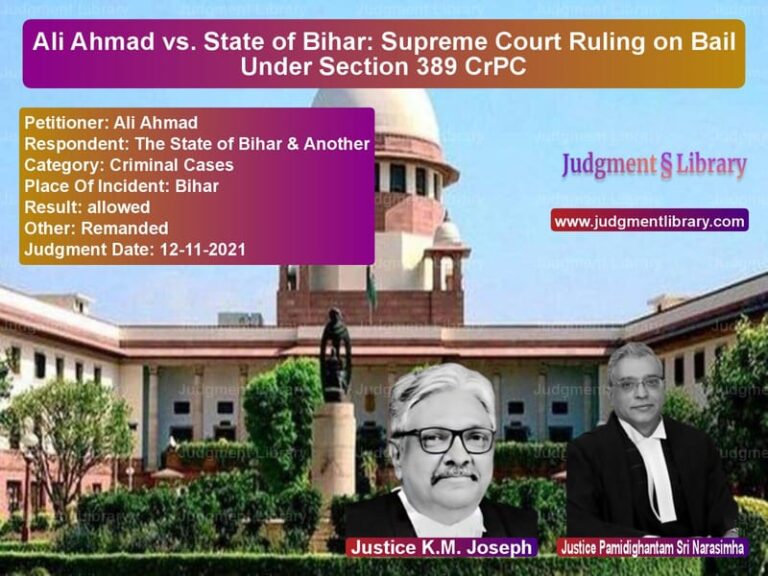West Bengal Housing Law Declared Unconstitutional: Supreme Court Strikes Down WB-HIRA
The Supreme Court of India has delivered a landmark judgment concerning the constitutional validity of the West Bengal Housing Industry Regulation Act, 2017 (WB-HIRA). The case, filed by the Forum for People’s Collective Efforts (FPCE) against the State of West Bengal, questioned whether WB-HIRA was repugnant to the Real Estate (Regulation and Development) Act, 2016 (RERA), a central law governing the real estate sector across India.
Background of the Case
RERA was enacted in 2016 by Parliament to regulate the real estate industry and protect the interests of homebuyers. It provided for mandatory registration of real estate projects, disclosures by promoters, and a regulatory authority for consumer redressal. However, West Bengal chose to enact its own law, WB-HIRA, which was nearly identical to RERA but had some deviations.
The petitioners, led by FPCE, argued that WB-HIRA was unconstitutional because:
- It covered the same subject as RERA and was therefore repugnant under Article 254 of the Constitution.
- The State of West Bengal did not obtain Presidential assent for WB-HIRA, which is mandatory for state laws that contradict central legislation.
- It created a parallel legal regime that could lead to confusion and inconsistency in real estate regulations.
Arguments Presented
Petitioners’ Arguments
The petitioners, represented by senior counsel, argued:
- RERA is an exhaustive and complete code governing real estate transactions and consumer protections.
- WB-HIRA mirrors RERA in most aspects but includes minor changes that favor real estate developers, undermining consumer protections.
- The lack of Presidential assent for WB-HIRA makes it unconstitutional under Article 254(2) of the Constitution.
- Having separate laws for different states creates inconsistencies, defeating the purpose of a unified regulatory framework under RERA.
Union of India’s Arguments
The Union government supported the petitioners, stating:
- RERA was enacted after extensive consultation and applies uniformly across India.
- West Bengal’s enactment of WB-HIRA, without repealing its previous law (the West Bengal 1993 Act), created unnecessary legal duplication.
- The central government had repeatedly requested the State to adopt RERA rules instead of enacting a separate law.
West Bengal’s Arguments
The State of West Bengal, represented by its counsel, defended WB-HIRA by arguing:
- Housing and real estate fall under the State List, allowing states to legislate on the subject.
- WB-HIRA was enacted to address local issues that RERA does not adequately cover.
- The law did not contradict RERA but supplemented it by providing additional provisions suited for the state’s real estate market.
- Sections 88 and 89 of RERA allow states to enact additional laws, making WB-HIRA valid.
Supreme Court’s Analysis and Judgment
1. Repugnancy Between WB-HIRA and RERA
The Court examined the similarities and differences between WB-HIRA and RERA, concluding that:
- WB-HIRA substantially copied RERA but made changes that weakened consumer protections.
- RERA is a central law enacted under the Concurrent List, meaning state laws cannot override it without Presidential assent.
- WB-HIRA was not reserved for the President’s consideration, violating Article 254(2).
2. Overriding Effect of RERA
The Court emphasized that Section 89 of RERA gives it overriding power over any inconsistent state law. Since WB-HIRA directly conflicts with RERA, the Court held that RERA must prevail.
3. Lack of Presidential Assent
The Court noted that WB-HIRA was never presented for Presidential assent, which is mandatory for state laws that contradict central laws in the Concurrent List. Without this assent, WB-HIRA was void.
4. Intention to Occupy the Entire Field
The Court held that Parliament intended RERA to be the sole law governing real estate regulation in India. Allowing state-specific laws like WB-HIRA would defeat the uniform regulatory framework Parliament sought to establish.
5. Impact on Homebuyers
The judgment acknowledged that WB-HIRA created a situation where homebuyers in West Bengal were subject to a different regulatory regime than the rest of India. This inconsistency could disadvantage homebuyers in the state.
Final Verdict
The Supreme Court ruled:
“The West Bengal Housing Industry Regulation Act, 2017, is unconstitutional as it is repugnant to the Real Estate (Regulation and Development) Act, 2016, under Article 254 of the Constitution.”
As a result, WB-HIRA was struck down, and the state was directed to implement RERA fully. The judgment reaffirmed that states cannot bypass central laws in the Concurrent List without following constitutional procedures.
Conclusion
The Supreme Court’s ruling ensures that RERA remains the sole governing law for real estate regulation in India. It protects homebuyers by providing a uniform and consistent legal framework. The decision also reinforces the constitutional principle that state laws must yield to central legislation in the Concurrent List unless they receive Presidential assent. With this judgment, all real estate projects in West Bengal will now be regulated under RERA, ensuring better transparency and accountability in the sector.
Petitioner Name: Forum for People’s Collective Efforts (FPCE).Respondent Name: State of West Bengal.Judgment By: Justice Dhananjaya Y Chandrachud.Place Of Incident: West Bengal.Judgment Date: 04-05-2021.
Don’t miss out on the full details! Download the complete judgment in PDF format below and gain valuable insights instantly!
Download Judgment: forum-for-people’s-c-vs-state-of-west-bengal-supreme-court-of-india-judgment-dated-04-05-2021.pdf
Directly Download Judgment: Directly download this Judgment
See all petitions in Constitution Interpretation
See all petitions in Legislative Powers
See all petitions in Judgment by Dhananjaya Y Chandrachud
See all petitions in allowed
See all petitions in Quashed
See all petitions in supreme court of India judgments May 2021
See all petitions in 2021 judgments
See all posts in Constitutional Cases Category
See all allowed petitions in Constitutional Cases Category
See all Dismissed petitions in Constitutional Cases Category
See all partially allowed petitions in Constitutional Cases Category


